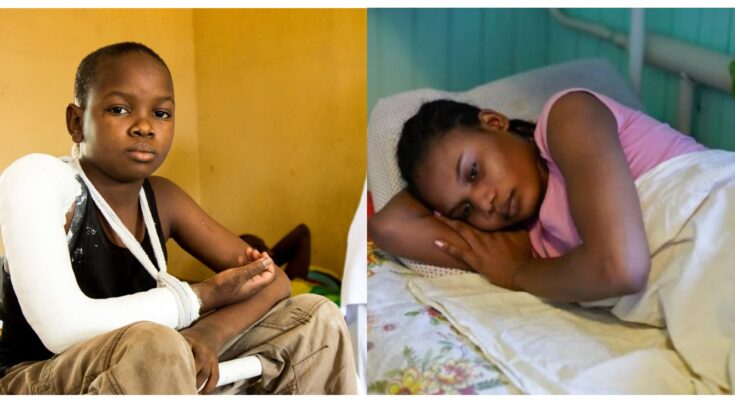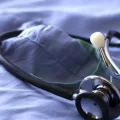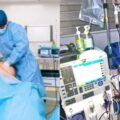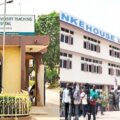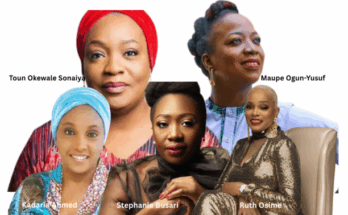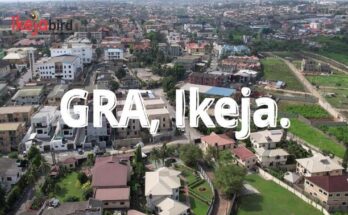When sick or injured, we rely on hospitals to provide prompt, expert care. But two Nigerian mothers faced harrowing struggles trying to get treatment for their children at Lagos State University Teaching Hospital (LASUTH). Their experiences reveal major gaps in Nigeria’s healthcare system.
Fifteen-year-old Amaka endured weeks of excruciating pain, while waiting for surgery at LASUTH. Her surgery was postponed indefinitely due to a doctor’s strike.
Mrs Ayoola’s trust in the hospital was shattered after her son was badly treated at LASUTH for a broken arm. Both cases highlight issues of understaffing, inadequate training, and lack of access impacting the country’s overburdened public hospitals.
Surgery Postponed Due to Doctors’ Strike
Fifteen-year-old Amaka had been suffering from intense pain and inability to urinate or pass out faeces for weeks. Her mother, Mama Amaka had bought different medication from the pharmacy, and herbal remedies too, but nothing relieved the pain.
“I go different pharmacy, all the drugs wey dey recommend, I give Amaka all of them, but the thing go better small, then start again,” Mama Amaka explained.
She later took her daughter to LASUTH.
“The thing dey very stressful for me, na so so waka up and down I do. My oga and me fight at different times,” she said, explaining what she went through at LASUTH.
Finally her daughter was treated, and was able to urinate and pass out faeces.
“I dey happy when my daughter dey alright so we carry her go house. But the matter start again”
Mama Amaka said her daughter started complaining of pain and she was rushed back to the hospital.
The doctors diagnosed a condition impacting her menstrual cycle and fertility relating to the first illness. They said Amaka needed surgery and blood transfusion.
Desperate to help her suffering daughter, Mama Amaka borrowed money from her church community to pay for Amaka’s surgery and blood transfusions. After weeks of pain and worry, everything was finally in place for the life-changing operation.
But just as Amaka was admitted to LASUTH for surgery, doctors and nurses went on strike demanding improved pay and working conditions. Her daughter’s surgery was canceled despite being in severe pain.
Mama Amaka described how crushing this was, saying “We ready to do the surgery when doctor and nurse for LASUTH come strike. Just like that, dem postpone my pikin surgery. No be our fault, but she dey suffer dey wait.”
Ongoing Pain as Daughter Awaits Rescheduled Surgery
While the strike continued, Amaka remained in agonizing pain from her condition, unable to get the surgery she desperately needed. Her mother pleaded with hospital staff to make an exception and perform the surgery, but she was firmly told the doctors were on strike.
Mama Amaka begged, “Una no get some doctors wey still dey work? Make una help do the operation abeg.” But the hospital insisted all the doctors were on strike.
The striking doctors refused to make exceptions for sick children like Amaka already in mid-treatment. Hospital administration said they regretted the impact on patients but felt they had no choice until the government addressed the doctors’ grievances.
Surgery Finally Completed After Strike Ends
Amaka was finally able to get the surgery she needed after the doctor’s strike ended.
Situations like this illustrate how strikes, while intended to benefit workers, can also unintentionally harm vulnerable people relying on public services.
It’s a reminder of how important it is for all parties to work towards good faith agreements as quickly as possible.
I moved my son from LASUTH to Mama Dey Go: Nigerian mother shares her story
Mrs Ayoola, a teacher, went to work and came back to see her son’s hand broken after a fall.
“I finished lessons around 5pm. He and his sister left the school since 3pm, but I came home to see that the alfa near our house had put different small sticks on his hand.”
She immediately called her friend who had a car to carry him to the hospital because he was not feeling anything on his palm.
“I started crying, the hand was so big and swelling, so I called my friend to carry him to LASUTH immediately. We got there and they put POP on his hand, and told us to come check in two days.
Mrs Ayoola revealed that when they returned for check up, they noticed something was wrong so they removed the cast. The doctor changed it and we spent another money.
But on another follow-up visit, the family realized something was terribly wrong. “When we came there, the doctor noticed his hand was not straight. They changed to a new cast claiming that the doctor who worked that day was a novice,” Mrs. Ayoola revealed.
A specialist who also saw them noticed that something was wrong, so he told them to do an xray immediately. They waited for like eight hours to see him again before he confirmed that the boy’s hand had shifted because of the wrong cast. The boy needed an operation, stating their fees to be around 200,000 naira.
“A friend who I believe God directed to me told me about these local people. They call this woman, “Mama dey go” Mrs. Ayoola revealed.
“I was so frustrated so I took my son to the local people for bone work, and in three months his hands healed successfully. I am not criticizing them for my son’s hand, but dem no do well.”
While it’s unclear whether the subpar initial cast was due to an incompetent resident or a simple mistake, the scenario highlights how improper emergency care can end up doing more harm than good. And families like the Ayoolas may understandably lose faith in public hospitals after such an incident.
Conclusion
The children’s painful ordeal underscores the urgent need for reforms and investment in Nigeria’s public hospitals. While doctors’ strikes stem from valid grievances, innocent patients end up suffering greatly when vital surgeries are postponed indefinitely. Hospitals must find ways to continue providing emergency services during labor disputes.
Additionally, hospitals need sufficient staffing and training to avoid medical errors like the botched casting of Mrs. Ayoola’s son. Mistakes due to overworked or under trained staff erode public trust. Patients deserve access to quality care from competent providers, regardless of ability to pay. Quality care must become available to all, not just those who can afford private clinics.
Stories like these reveal gaps in Nigeria’s healthcare system that demand attention. Hospitals must balance personnel needs with patients’ rights in order not to harm the nation’s most vulnerable citizens.

